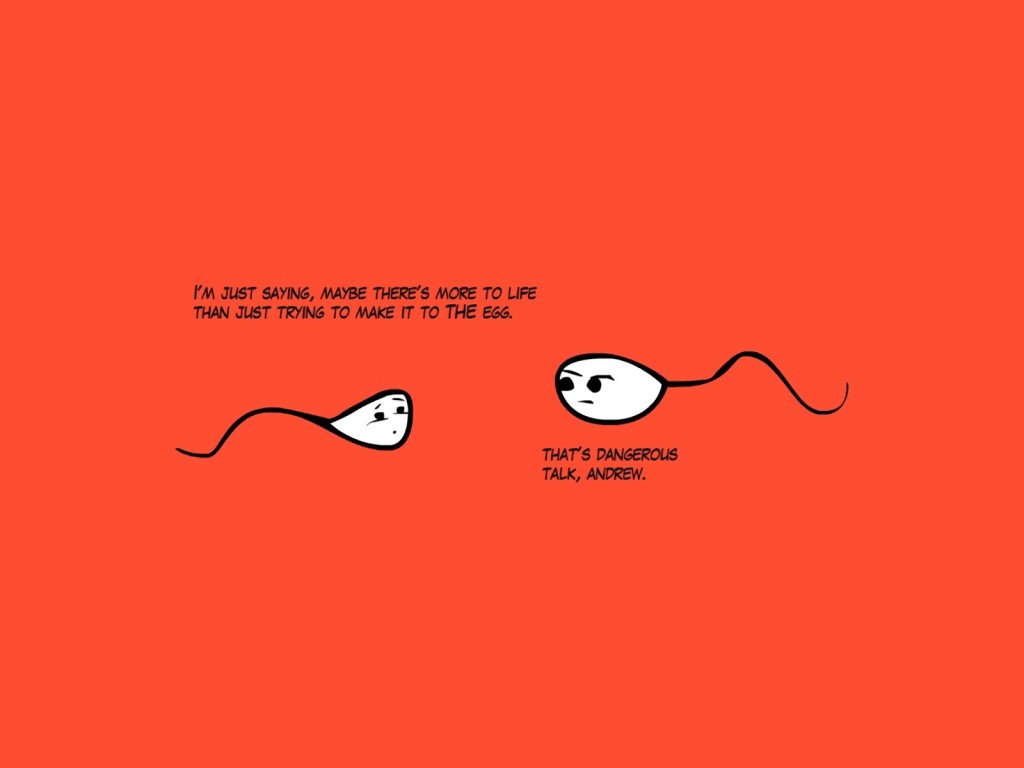
Maintaining a high sperm count is extremely important when trying to conceive. But there are some foods and other lifestyle sperm zappers that you need to avoid to protect your swimmers. The bad news? Less booze. The good news? More Sex.
Canned food
The common household chemical bisphenol A (BPA) can lower sperm counts and motility, according to a study in Reproductive Toxicology. Food packaging is a major source of BPA, which can seep into the food. Most food cans are coated with BPA resin, and acidic canned foods are especially risky.
Sex toys
Certain plastics, including vinyl used in some sex toys, release phthalates — plastic-softening chemicals that have been tied to lower reduced sperm count and quality. Glass, silicone and green sex toys are a safer bet.

The shower
Phthalates are found in many shampoos, soaps, deodorants and shaving creams. Look for natural, phthlate-free products instead.
Marijuana
It’s not surprising that smoking cigarettes is bad for sperm, but smoking weed isn’t much better. Heavy marijuana smokers have been found to have significantly lower sperm counts and sperm with bad swimming strategies.
Stress
Stress can cut sperm count dramatically by inhibiting the production of testosterone.
Booze
Women aren’t the only ones who should slow down on drinking while trying to conceive. Alcohol can inhibit sperm production and lower sperm counts.
Receipts
BPA is found on about 40 percent of cash register receipts, according to a 2010 University of Missouri study. The chemical can penetrate skin or be passed from hand to mouth to the digestive track. Skip the receipt or wash your hands after signing.

Soy
Isoflavones found in soy products mimic estrogen, and a 2008 study linked soy consumption to significantly lower sperm counts.
Contaminated fish
Polychlorinated biphenyls (PCBs) are a group of toxic chemicals that have been banned but have accumulated in certain fish — especially predator fish and bottom-feeders. They are associated with decreased sperm counts and integrity. Smaller, younger fish are considered safer non-sperm zappers.
Nonstick pans
Chemicals called perfluoroalkyl acids are used in the manufacturing of nonstick products such as Teflon, Gore-Tex and wax paper and can significantly lower sperm counts, according to a Danish study.
Abstinence
Of course not having sex at all won’t help, but some couples abstain for days or weeks in hopes of saving sperm until the woman is ovulating. This doesn’t work. Researchers have found that while it does take a day or two for sperm to replenish themselves after ejaculation, waiting any longer than that can cause them to lose motility and change shape.
Avoid sperm zappers in your life.
Keep Cool.
Source: Huffington Post
